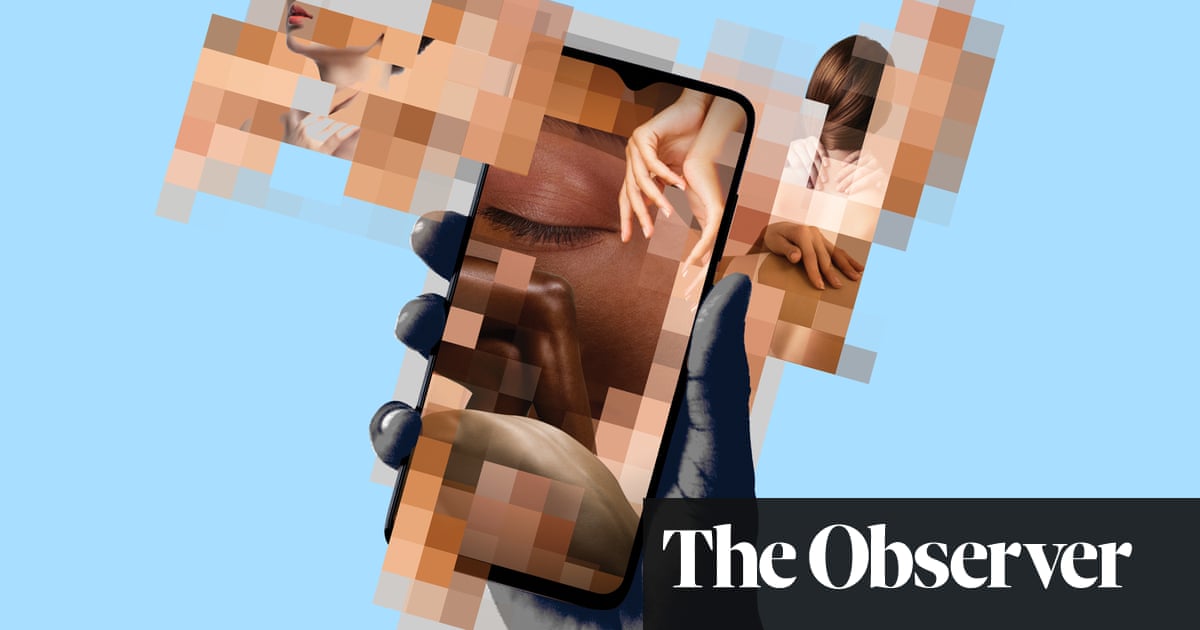You’re diagnosed with terminal cancer at the age of 46. How do you react? In all likelihood with rage, grief and self-pity, especially if, like Simon Boas, you were told it was only acid reflux, and cancelled scans and bureaucratic cock-ups further delayed treatment. You love your wife, you have a great job, you’re addicted to cheese fondue and muscadet, and death will take all that away. A nightmare, it seems, but far from bewailing his lot Boas tells us how insanely contented he feels and “how lucky it is to have lived at all”.
His book began as a trio of articles written for the Jersey Evening Post: he moved to the island (“one of the most caring, safe and close-knit communities in the world”) not as a billionaire tax-dodger but to be its director of overseas aid. The articles were plain about his impending death, though he had some fun with euphemisms: he was “hopping the twig”, joining the choir invisible, on a one-way trip to the south pole. As the tumours spread, along with his readership, he continued to be upbeat. The last article appeared in May this year before his death, aged 47, in July.
Be kind and grateful, he urges. “Feast and laugh and voyage and sing!” His positivity, conveyed in breezy exclamation marks, is a slap in the face for those of us who are afraid of death and who feel entitled to threescore-and-ten. Boas wants people to smile when they remember him and to “think of me as a book they are glad they’ve read”. Why should he complain when he has lived longer than most humans in history and when his experiences as an aid worker, in war zones and shattered communities, have taught him how privileged those of us in developed countries are? “Cheer up you buggers” is the message.
Enjoyably self-deprecating, he doesn’t claim to be a philosopher but offers cogent reasons for equanimity in the face of death. Acceptance offers perspective, he says, and is better than pursuing miracle cures. Through meditation, counselling and psychedelic drugs you can ease end-of-life anxiety. He talks optimistically of humanity’s essential goodness and of how markedly the state of the world has improved. He also cites his faith in God (“A benevolent creator strikes me as no more far-fetched than the latest efforts of physics to make sense of our world”) and the possibility of an afterlife.
Non-believers will cringe at that point. And even if you do think that “something of us lives on” beyond the grave, what solace is that for dying young and leaving loved ones bereft? He’s more convincing when advising us how not to behave with somebody who’s terminally ill. Don’t turn up unannounced. Don’t make cheery small talk. Don’t minimise (“avoid any sentence that begins ‘at least’”). Don’t offer medical advice. And rather than say, “Please let me know if there’s anything I can do”, do something useful.
The book makes an illuminating contrast with another cancer story that’s just been published, Graham Caveney’s The Body in the Library. Where Boas is buoyant, saying little about his discomfort and a great deal about the joys of being alive, Caveney – diagnosed in his 50s with stage-four cancer of the oesophagus (“Inoperable. Incurable”) – takes us steadily through the gruelling treatment. He’s wry about the ordeal (“I’m an impatient outpatient”) but honest about his devastation. Both writers touch on Larkin, but Caveney is more in tune with the dread in his great poem Aubade: “Not to be here, / Not to be anywhere, / And soon; nothing more terrible, nothing more true.”
Immune to mournfulness, Boas keeps the jokes up to the end, with a set of random biographical facts: “Cigarettes: c 200,000”; “Bears outside tent: twice”, “Shot: once. Israeli army … Back of the leg. Good war wound until someone pointed out I must have been running away.” As the eulogy from his friend James here testifies, Boas was a remarkable man, and brilliant aid worker, who made the most of life. His book will uplift anyone who’s struggling with illness. But for those who are with Larkin and Caveney, and Julian Barnes in Nothing to Be Frightened Of, his campaign to take the sting out of the tail isn’t altogether persuasive.
after newsletter promotion

.png) 2 months ago
13
2 months ago
13













































